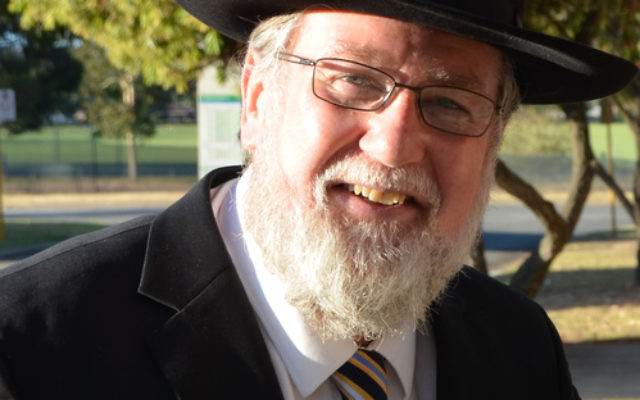Rabbi Freilich’s parting advice
AFTER 30 years as rabbi of the Perth Hebrew Congregation (PHC), and 45 years in the rabbinate, Rabbi Dovid Freilich has made way for his successor, Britain's Rabbi Daniel Lieberman.
AFTER 30 years as rabbi of the Perth Hebrew Congregation (PHC), and 45 years in the rabbinate, Rabbi Dovid Freilich has made way for his successor, Britain’s Rabbi Daniel Lieberman.
Receiving s’micha from Jew’s College in London and other rabbinical seminaries, Rabbi Freilich described himself as “a young man of the 1960s … influenced by the Beatles”. In fact, one of his projects in retirement will be releasing an album of his poetry set to music. Rabbi Freilich was the first Sydney-born congregational rabbi and served as rabbi of Maroubra Synagogue from 1973 until he moved to PHC in 1988.
But the rabbi, who headed the Kashrut Authority of WA, and is a former president of the Organisation of Rabbis of Australasia (ORA), now the Rabbinical Council of Australia and New Zealand, has used his departure as an opportunity to raise issues troubling him for years.
Rabbi Freilich resigned from ORA in 2012 after a panning by other rabbis for speaking out on their behalf over child sex abuse. He had condemned not only the abuse but its cover-ups and discouraging victims from coming forward. But his colleagues claimed they had not been consulted before the ORA president went public.
He has voiced concern at the lack of a beth din in WA. He said the location of Australian batei din only in Sydney and Melbourne is “an injustice to Jewish communities in many Australian cities”.
Rabbi Freilich described as “absurd” the insistence of rabbis that conversion candidates have to travel across the nation to complete their conversions, arguing the rituals in question do not require a rabbi, just a Jewish lay person.
“I can foresee a situation in the Jewish world as a result of these absurdities that other batei din will be formed around the world independent of the Chief Rabbinate of Israel and they will recognise each other,” the rabbi told The AJN.
Rabbi Freilich also slammed the “often self-serving disputes between kashrut authorities” around the world as “disappointing and embarrassing … They cause many in the community to be sceptical and disillusioned”.
As the head of kashrut in WA, he had insisted that no rabbi take payment for their kashrut services.
Rabbi Freilich described his successor Rabbi Lieberman and Rebbetzin Liat Lieberman as “a fantastic young rabbi and rebbetzin”, noting his timely exit had ensured a smooth succession.
Summing up his philosophy, Rabbi Freilich said: “I believe a good rabbi is one who has the halachic knowledge, courage and fear of heaven to be able to make Judaism palatable, accessible, relevant and easy for his community, without making a great deal of fuss about it.”
PETER KOHN


comments